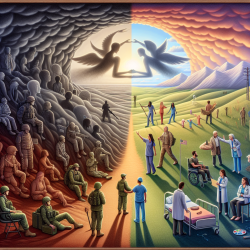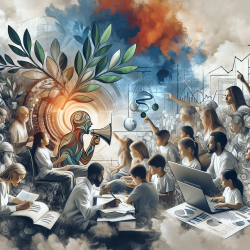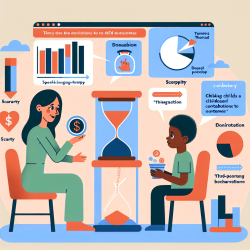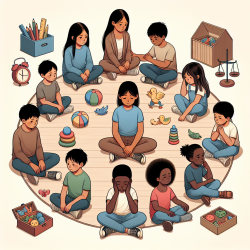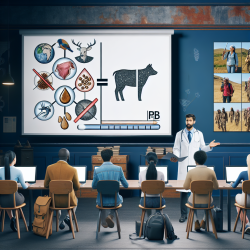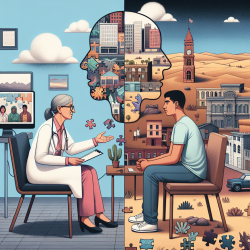Understanding Moral Injury: Insights for Practitioners from Recent Research
The concept of moral injury has gained significant attention in recent years, particularly in the context of military veterans and healthcare workers (HCWs) during the COVID-19 pandemic. A recent study titled Patterns of Potential Moral Injury in Post-9/11 Combat Veterans and COVID-19 Healthcare Workers sheds light on the prevalence and impact of moral injury in these two distinct groups. As practitioners, understanding the nuances of moral injury can enhance our ability to provide effective support and interventions.
What is Moral Injury?
Moral injury is defined as the psychological, biological, spiritual, behavioral, and social impact of perpetrating, failing to prevent, or witnessing acts that transgress deeply held moral beliefs. Initially studied in military veterans, moral injury is now recognized as a significant concern for HCWs, especially during the high-stakes situations presented by the COVID-19 pandemic.
Key Findings from the Research
The study compared patterns of potential moral injury (PMI) between post-9/11 military combat veterans and HCWs during the COVID-19 pandemic. The findings revealed that:
- 46.1% of veterans and 50.7% of HCWs endorsed other-induced PMI, while 24.1% of veterans and 18.2% of HCWs endorsed self-induced PMI.
- Both types of PMI were associated with higher depressive symptoms and lower quality of life in both groups, with HCWs also experiencing higher burnout rates.
- Demographic factors such as gender, race, and age played a role in the likelihood of experiencing PMI.
Implications for Practitioners
Understanding the dynamics of moral injury can help practitioners tailor interventions to better support individuals affected by it. Here are some strategies to consider:
- Recognize the Signs: Be vigilant for symptoms of depression, anxiety, and burnout, which may indicate underlying moral injury.
- Provide Contextual Support: Acknowledge the broader social and systemic factors contributing to moral injury, and offer support that addresses these contexts.
- Develop Tailored Interventions: Adapt intervention models used with veterans to suit the needs of HCWs, focusing on both individual and systemic levels.
- Encourage Further Research: Engage in ongoing research to explore the long-term impacts of moral injury and effective intervention strategies.
Conclusion
The potential for moral injury is significant among both combat veterans and HCWs, with serious consequences for mental health and well-being. As practitioners, it is crucial to recognize the signs of moral injury and implement interventions that address both individual and systemic factors. By doing so, we can better support those affected and contribute to their recovery and resilience.
To read the original research paper, please follow this link: Patterns of Potential Moral Injury in Post-9/11 Combat Veterans and COVID-19 Healthcare Workers.
